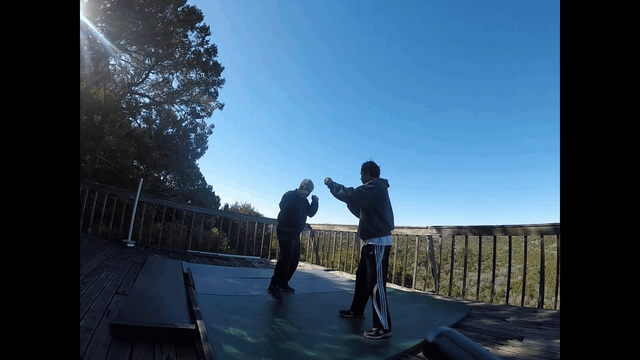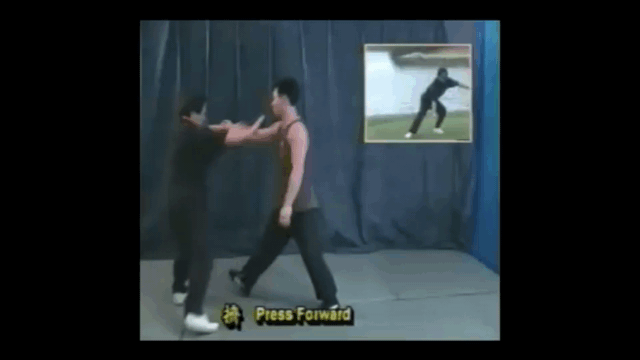windwalker099
3rd Black Belt
Enable CC for English
Follow along with the video below to see how to install our site as a web app on your home screen.
Note: This feature may not be available in some browsers.
Could you briefly elaborate on what the video is speaking/showing……Enable CC for English
Could you briefly elaborate on what the video is speaking/showing……
To control both of your opponent's leg is better than just to control one of his legs.What did you think of the teachers presentation ?
did it align with your practice ?
He mentions 3 point pair...among other things.
thoughts ?
I don't know why "3 point pair" is any important. If you haveAligned with " 3 point pair "


Thanks. The foot position depend on what combat application one have in mind, the transitional movement are part of the application of the final posture, one should understand all directions, equally important understanding the front leg force is understanding the back leg force, the form count many postures, but the Taiji form should be one continuous flow, all postures are as if one, a single posture as if all, and so it’s kind of formless that may fit into all possible encounters.He talks about the stepping in tai chi compared to Shaolin
using the Chuan Zi Step (穿字步, Chuān Zì Bù) a stepping method used in traditional Chinese martial arts,
View attachment 32569
Notice the knee pointing straight
View attachment 32570
Notice the knee pointing in, he calls this "knee hugging"
View attachment 32571
He considers this correct stepping..
View attachment 32572
Used protect your space, and control, break the others posture when moving in,
Thought some might be interested in how he steps and his reasoning for doing so.
Reminds me of" Kung Fu Wang's" comments about controlling the rear or front leg.
The stepping and theory shown by this teacher very different from my own practice.
his method is very linear. and long...
Thanks. The foot position depend on what combat application one have in mind, the transitional movement are part of the application of the final posture, one should understand all directions, equally important understanding the front leg force is understanding the back leg force, the form count many postures, but the Taiji form should be one continuous flow, all postures are as if one, a single posture as if all, and so it’s kind of formless that may fit into all possible encounters.
Yes I understand your approach. I think the approach of very visual particulars(as in the video of the guy in your OP) of a stance/move to form a specific defence to suit a specific attack is more “Shaolin” basics than TaijiThought the teacher's approach was interesting contrasting with his knee postion.

In my work, this would be called misaligned his weight not really dropping through the Yongquan (涌泉), bubbling well point.
His stance is very narrow and extended...
for comparison..
View attachment 32584
View attachment 32585
Very similar to my work... the stepping is more wider, and shorter not as extended.
Different concept, not dealing with body as with
the first teachers method...
What do you mean "more Shaolin basics than Taiji"?a stance/move to form a specific defence to suit a specific attack is more “Shaolin” basics than Taiji
It’s the guy in the video making the distinction Taiji - Shaolin, by meaning his posture is a Taiji posture while another posture is a Shaolin posture, I mean that his posture and take on it is as much Shaolin as the Shaolin he compares with - meaning - out of his BKTS posture specific fixation his Taiji form must be 108 distinct starts and stops, 108 methods of defenses against 108 specific attacks, this is not the way of engaging ones senses if one is supposed to do the 108 postures exercise as Taijiquan.What do you mean "more Shaolin basics than Taiji"?
